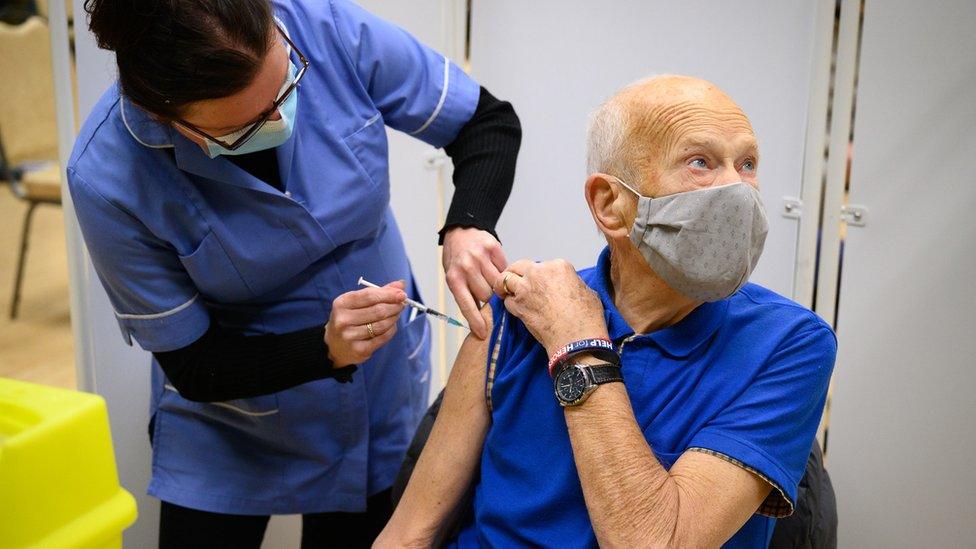UK hits first vaccine milestone - what happens next?
- Published

The first target has been met - 15 million of the most vulnerable people in the UK have been given their first Covid-19 vaccine.
More than 15 million people in the UK have now had been given their first dose of the coronavirus vaccine.
That is a big milestone because that means the top priority groups, those who are most vulnerable to the virus, have been offered the jab in England and Wales.
Prime Minister Boris Johnson said it was an "extraordinary feat" and the country can go forward "with great confidence".
This now means that the jab can be offered to the next priority groups, and the government are hoping to offer a first dose to another 17.2 million people before the end of April.
Everyone who is vaccinated should have a booster jab within 12 weeks of their first.
What does this mean for ending lockdown restrictions?
Although this is good news for the millions of people who were most likely to become ill from coronavirus, the government say there is still a way to go before lockdown restrictions can be eased.
They have said they will set out a roadmap for unlocking during the week of the 22 February.
Boris Johnson has said he aims to reopen schools by 8 March but says he wants to see a huge reduction in people being admitted to hospitals first.
Who is next in line to receive the vaccine?
Back in December, experts drew up a list of groups who would be offered the vaccine first.
Older people who live in care homes
Care home workers
People aged 80+
Health and social care workers
Ages: 75-79
Ages: 70-74
Clinically extremely vulnerable people (under 70)
The vaccine rollout will now continue and be expanded to those aged 65 and over. That will then be followed by people aged 16-64 with underlying health conditions.
It is hoped that the whole of the UK's adult population will be offered the vaccine by the autumn.
Children are not expected to be offered the vaccine but a clinical trial of around 300 volunteers has started which will examine the effects of the Oxford-AstraZeneca vaccine in six to 17 years old.
